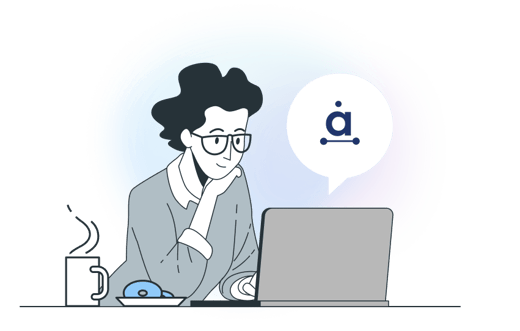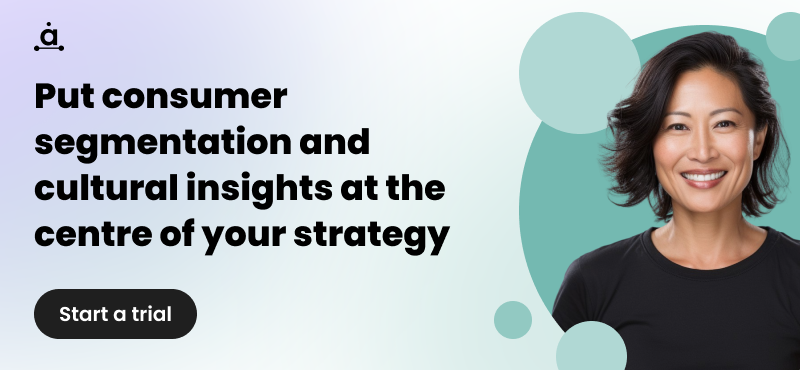2020's trends in market research that companies should pay attention to
Insights professionals, data analysts, leading brands, researchers, marketing professionals, consultants and academics met this week to discuss and share their visions and experiences about the industry in one of the most important events in the sector, ESOMAR Congress 2019 - The Global Data & Insights Summit, in Edinburgh. Audiense participated with a stand in this edition, bringing new impressions, contacts and ideas for the company and for our customers.
Our industry has bared witness to more rapid and radical change and evolution over the last few years than ever before, hence the need to unite industry-leading thinkers, professionals and brands to discuss the current challenges and those that will come. ESOMAR is a not-for-profit organisation that promotes the value of market, opinion and social research and data analytics, for over 70 years.
Boom in the demand for consumer insights
In the 30 market research predictions a group of professionals did for 2019 (in a large article published in the GreenBook blog), innovation is a common denominator. We contacted some of the speakers who were in Edinburgh this week to share comments on their particular vision of the industry.
Ray Poynter, ESOMAR Council Member and founder of #NewMR, says that the main trend for 2020 will be the application of recent innovations, in particular the application of Automation and to a lesser extent AI to deliver faster, cheaper, good research. “The big methodology change that is going to happen over the next few years is the rise of chatbots, ‘the new mobile’.”
The fusion of data sources is the future, especially in the area of audience research but not only there, according to the Head of Market Insights at Google Spain and Portugal, Pablo José Pérez. “We are facing a reality where each aspect of consumer behaviour is being measured best by a particular methodology or data source, but does not give the whole story. In order to have a complete view, all those sources have to work in combination,” in Pérez’s opinion.
A greater understanding of what drives the data
The cognitive-behavioural economist Leigh Caldwell, partner at behavioural insight agency Irrational Agency, highlights that the trend for 2020 will be towards a greater understanding of what drives the data: human imagination, feelings and thinking. “This calls for mixed methods: qualitative exploration supported by new types of quant measure (e.g. imagination measurement, cognitive economics), and behavioural science-informed data analysis.”
After spending four days at ESOMAR Congress, the Audiense CEO, Javier Burón, says that he was very impressed in how traditional consumer research methodologies and tools are significantly influencing, and with success, the decision making in product strategies.
“The continuous and urgent need to stay ahead of the competition for this input makes the correct blend between new methodologies, usually based on social and other unstructured types of data, the most successful combined solution.”, states Burón.
Smoothly or not smoothly?
For the Data Storyteller, Insight & Innovation/Consumer Behavior at Sony Pictures Entertainment, Karina Besprosvan, the barriers among the research industry and the analytic industry have started to fall away this year. "We will smoothly become one bigger and modern industry, giving us the advantage of melting the best of both worlds".
Ray Poynter doesn’t share Besprosvan’s opinion: “I do not expect any of the major changes over the next few years to be smooth. One of the big challenges is that many of the new players do not understand market research and in many cases, they struggle with the ethics of data. I expect mergers, acquisitions, and several business failures. But there will be change.”
The need for hybrid profiles
On the other hand, the Head of Market Insights at Google Spain and Portugal thinks that the barriers are falling on the client-side. “It's a process that started already some years ago as teams started to be integrated or new roles were opened. Where I see more opportunities is on the supplier side. Also, whereas barriers are dropping, it will remain hard to find individuals that are able to excel at both skill sets.”
Ignacio De la Iglesia, Quantitative Research Lead in The Cocktail Analysis agency, speaks precisely about the need to find hybrid profiles: "the jump is logical but it will require hybrid profiles that come from research but are also familiar with SQL and similar; this should come together with the training of new job profiles that are now in each side of the spectrum.”, he tells us.
For Leigh Caldwell, analytics provides reliable data but it only operates at the surface level: showing “what” people do but not “why”. “Research can dig deeper, looking at the customer's unconscious mind, their emotions and imagination. Then we can uncover the deeper trends behind the surface behaviour, which tells us how to give customers what they really want. This lets us provide a better world for the consumer - and a more profitable set of tools for companies.”







